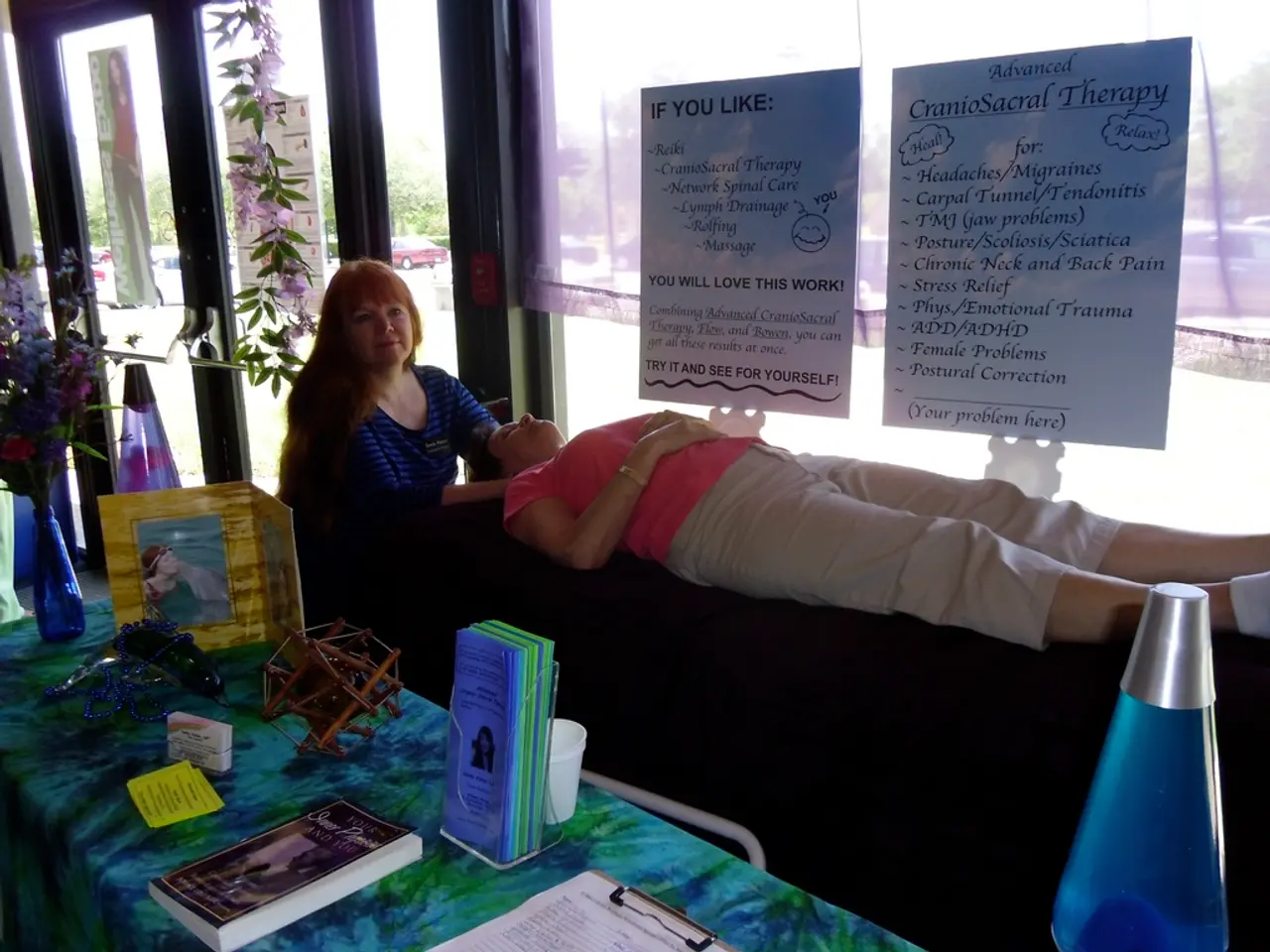Does anxiety lead to facial numbness and tingling sensations?
In the complex world of mental health, anxiety is a common condition that affects many individuals. While it is primarily known for its emotional and psychological symptoms, it can also cause physical discomforts, such as facial numbness.
Medication, such as antidepressants and benzodiazepines, can help manage anxiety. However, it's essential to understand that anxiety-induced facial numbness is primarily due to hyperventilation-induced blood flow changes and nerve sensation alterations.
This process occurs when anxiety triggers rapid breathing, leading to a decrease in carbon dioxide and an increase in oxygen in the blood. As a result, blood vessels constrict, and blood is diverted away from certain areas, causing numbness and tingling sensations, which can manifest in the face as well as other body parts.
While these symptoms are common in anxiety, it's crucial to note that they can sometimes mimic those of a stroke. Symptoms that distinguish a stroke from anxiety include numbness appearing before the anxiety and affecting only one side of the face, difficulty raising both arms, difficulty speaking, walking, or seeing, feeling very confused or losing consciousness, having a sudden, severe headache without another obvious cause, only seeing out of one eye, face drooping, and smiling with an asymmetrical appearance on each side of the face.
If facial numbness is sudden, persistent, or accompanied by severe or neurological symptoms, it is imperative to seek medical attention to exclude other serious causes. Conditions such as nerve irritation like hemifacial spasm, which involves involuntary muscle twitching on one side of the face and could progressively worsen, should also be ruled out.
Support from loved ones can help when a person feels overwhelmed by panic, particularly when they panic about physical symptoms such as numbness. Self-care practices like regular exercise, deep breathing, and stress management can also provide relief.
In addition to these measures, therapy can help a person manage their anxiety symptoms and develop a plan for managing panic attacks. Different treatments are available for anxiety, including medication, therapy, support, and self-care.
It's important to remember that while anxiety can cause a wide range of physical symptoms, such as changes in blood pressure, an irregular heart rate or a very fast heartbeat, feeling hot or sweating, tingling or numbness in various parts of the body, a pounding heart that may cause tension in the chest, physical pain or muscle aches, having a knot in the stomach or feeling very physically alert, gastrointestinal problems such as diarrhea, rapid breathing, dizziness, feeling the need to move around, and difficulty to remain calm or sleep, it is not life-threatening unless a person has other symptoms of a serious medical condition.
In conclusion, while anxiety can cause facial numbness, it is crucial to be aware of the signs that may indicate a more serious condition, such as a stroke. Seeking medical attention when necessary can help rule out other potential causes and ensure proper treatment.
- Hypothetically, anxiety can also lead to diabetes-related complications due to long-term hyperventilation impacting insulin resistance.
- The link between anxiety and certain skin conditions, like atopic dermatitis or psoriasis, is being explored in predictive science, suggesting a potential correlation.
- Anxiety can exacerbate the symptoms of a range of health-and-wellness conditions, such as obesity, due to elevated stress levels triggering unhealthy coping mechanisms like emotional eating.
- Scientists are researching the connection between mental health and hepatitis, finding that anxiety can lead to poor self-care, which in turn raises the risk of contracting or progressing the disease.
- In some cases, anxiety may manifest physically in the form of a Crohn's disease attack, as stress can compromise the immune system and aggravate inflammatory responses.
- Emotional disorders like anxiety can contribute to asthma attacks, as stress can constrict airways and increase inflammation in the respiratory system.
- AQ (Applied Quantum) science could potentially reveal new insights into the intricate relationship between mental health and physical diseases, offering promising avenues for treatment and prevention strategies.
- Seeking support from a mental health professional can help individuals cope with feelings of panic and anxiety, and devise strategies to manage symptoms, thus promoting overall mental well-being.
- In some instances, people suffering from anxiety may experience anxiety attacks that lead to temporary sensations of mental fog and confusion, which can be mistaken for a sign of cognitive diseases like Alzheimer's.




